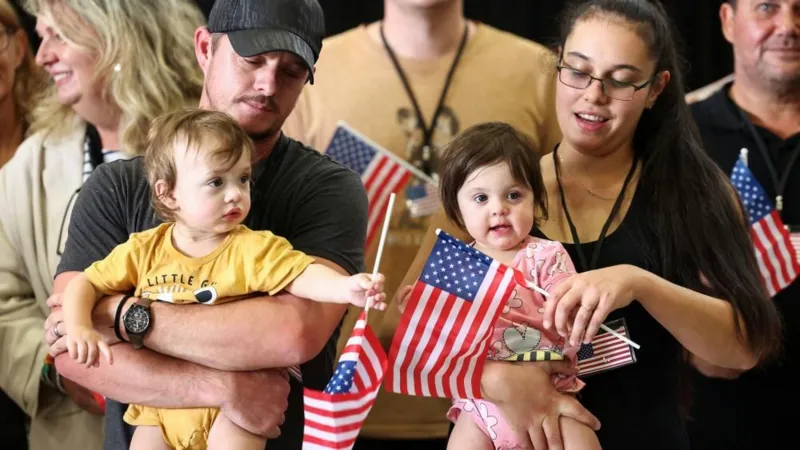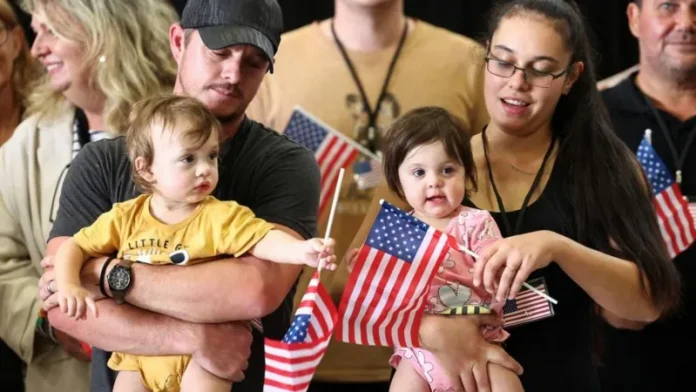South African President Cyril Ramaphosa has sparked intense debate following his strong remarks about a group of 59 white South Africans who recently resettled in the United States. Calling them “cowards,” Ramaphosa criticized their decision to leave the country, claiming it stemmed from resistance to the transformation efforts aimed at healing the wounds of apartheid.
The group, predominantly Afrikaners — descendants of Dutch settlers — landed in Washington, D.C. earlier this week after being granted refugee status by the U.S. government. Their departure was welcomed by senior American officials, with Deputy Secretary of State Chris Landau greeting them with the words, “Welcome to the land of the free,” amid a warm display of balloons and flags.
According to U.S. authorities, these individuals had faced “violence and terror” in South Africa, claims that echo former President Donald Trump’s earlier allegations of a “genocide” against white farmers — a narrative that has been widely discredited by numerous fact-checking organizations.
Ramaphosa, speaking at an agricultural expo in the Free State province, dismissed these claims and the motivations behind the relocation. “As South Africans, we are resilient. We don’t run away from our problems,” he stated. “When you run away, you are a coward. That’s a real cowardly act.”
He emphasized that the decision to leave reflects discomfort with post-apartheid reforms, particularly efforts to address historical land ownership imbalances.
Although black South Africans make up the majority of the population, they still own only a small portion of arable land, with much still in white hands. In January, Ramaphosa signed a law permitting land seizure without compensation under specific conditions — a move criticized abroad but defended at home as a necessary step toward equity.
Despite the heated language, Ramaphosa expressed confidence that those who left would eventually return, saying, “There is no country like South Africa. They’ll be back.”
However, not everyone agrees with his perspective. Some South Africans and international observers condemned his words on social media, calling them insensitive and divisive.

The U.S. embassy in South Africa has outlined specific criteria for refugee eligibility, requiring that applicants come from racial minorities and provide evidence of past or potential persecution. Ramaphosa argues the 59 individuals “don’t fit the bill” and questions the legitimacy of the refugee status granted.
In a separate address at the Africa CEO Forum in Côte d’Ivoire, the president claimed he recently spoke with Trump and rejected the U.S. stance. “We’re the only African country where colonizers came to stay, and we never drove them out,” he added, suggesting that South Africa has always aimed for reconciliation over revenge.
Tensions between the two nations could escalate further. Trump has hinted at boycotting the upcoming G20 summit in South Africa unless “the situation is taken care of.”
As the story continues to unfold, it touches on sensitive themes of race, migration, political rhetoric, and the ongoing struggle for equity in South Africa — themes that are likely to shape both domestic and international discourse in the coming months.



